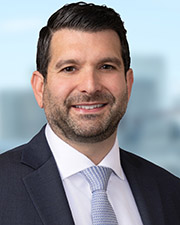News:
Owners Developers & Managers
Posted: January 4, 2008
From sponsor to association: Effective property management during condominium transition
We all know the struggle. You have been working diligently with the sponsor of a condominium from its inception. You've assisted in the document preparation and submissions. When the condo board is formed, the sponsor is the head of it. Units start selling and then one day your client, the sponsor, is no longer your client. Now, the condominium owners have assumed the majority position of the building's board, and your fiduciary obligation shifts to them. Completion continues to be everyone's goal, but the questions begin: Why isn't the heat working? Who decided to put in this intercom system? Why won't my windows close? The potential for conflicts escalates as the sponsor and his team tries to wrap things up while the owners begin to undertake their own renovations and move in.
It's no wonder there is often strife with condominium conversions. As the project nears completion, the sponsor is juggling financing, sales and closings, contractor performance, and all of the requirements of the attorney general's office in order to wrap things up (and still make a solid profit) while the purchasers are looking to maximize the quality and completeness of what is being provided by the sponsor before he gets out. The property manager is often swept into the middle of this. You have a history with the sponsor - you've prepared the supporting documents for his filings with the attorney general, and have witnessed the transition as the building received the temporary certificates of occupancy that are required so that units under contract can proceed to closing. But once the purchasers assume control of the board, you are called upon to critique everything that has previously been brought together by your initial employer, the sponsor.
Effective property management through this transition requires a deft approach to managing the expectations of both parties. There certainly have been unscrupulous developers who have sponsored particular projects, and some boards have been known to be comprised of a disgruntled coalition of high-powered individuals. In such cases, litigation may be the only answer. But there are ways in most projects to minimize the potential for disagreement and help keep the parties on an even keel.
Step 1 - Use Experienced
Team Members
Condominium conversions are challenging projects. Handling property management from the inception of occupancy through the owners' assuming control of the board is one of the most delicate balancing acts required. The first step is to put quality people in place. The building manager is a key player - this person must do more than just monitor day-to-day activities, he or she must also interface regularly with the new purchasers as they themselves become acquainted with their new home. As opposed to an established condominium that will experience only a certain percentage of turnover in any given year, in the first year at a new condominium everyone is a new resident. The effective building manager will be a leader in providing information to the new residents, and especially explaining the essence of their units and the facility, from operation manuals for appliances to building procedures to where final completion of construction stands. Communication is paramount - in many ways, the building manager becomes the conduit between the sponsor and the owners. The selection of articulate and politically-savvy building managers and supers is a critical key in a successful transition.
Step 2 - Be a Facilitator
Where situations emerge for which there is no ready solution, the property manager can demonstrate the value they bring to the overall process by bringing to bear their particular knowledge of practices common to the life of residential buildings. Many current developers have little experience, and equally many purchasers have never lived in a collective ownership condition prior to their relocation. As such, each party may have unreasonable expectations of the other's rights and obligations. Without being divisive or confrontational, the effective property manager can shape the expectations of all the participants so that each develops a respect for the other and an understanding of the limits of their collective relationship. All of this can be effectuated by tying the resolution of who is responsible for what within the context of a comprehensive overview of customary building policies and practices.
Step 3 - Be Pro-active
In spite of one's best efforts, conflicts will nevertheless arise. In many cases, the property manager can see these as they unfold. What if a unit owner finds a defect after the final inspection statement? Rather than allowing a situation to deteriorate, or a need to go unaddressed (even if it is perhaps unreasonable), the effective property manager can be a leader in resolving a crisis before it becomes one. Because of the property manager's unique position between the sponsor and the owners, he or she can, without compromising the integrity of either relationship, alert the parties of the discontent of the other in a given matter. The simple act of "raising the flag" is often enough to spur both sides to interact and resolve their differences - while neither may ultimately be satisfied and the conflict may continue, at least neither can claim ignorance of the situation. The property manager should not be a mediator within such a context, but merely a neutral, and politically astute, observer for each party within the realm of the other.
Step 4 - Be a Professional
Often, some participants in the condominium conversion process take the actions (or lack of actions) by other parties as a personal affront. Tempers flare, harsh words are exchanged, and accusations fly. The property manager may be dragged in and cast as an ally of one party or another. In such cases, a cool head is required. People are emotionally attached to their homes, and completion of condominiums is time-consuming, messy work. Patience is the best rule of thumb for all concerned.
Similarly, at times, the property manager may be asked to "do someone a favor" outside of the bounds of customary practice. Again, a professional approach is the only successful one. Your fiduciary responsibility is to the board - not to the contractor who wants you to allow an off-hours delivery "just this once" or the unit owner who wants a "new" refrigerator. While every property manager knows and understands the importance of the rules, the pressures encountered in the close of a condominium conversion for one-off "favors" cannot be underscored sufficiently.
In summary, the property manager in a condominium conversion must be a true master of personal relations. He or she must handle diverse personalities both as individuals (the owners and the sponsor) and in groups (the board), listen to and understand the emotional makeup of all parties, selectively convey information learned from one side of the table to the other without showing favoritism, and educate all parties as to what "should" be done in the building context without seeming either bombastic or opportunistic, all while maintaining a professional demeanor. Oh yes, and you have to run the building too!
Karen Shunick is the president of Kismet Construction Inc., New York, N.Y.
MORE FROM Owners Developers & Managers
Eight things every new NYC apartment board member should do in their first 100 days in office - by Yotam Cohen
Most people join their board because they care. They’re volunteering nights and weekends to make their building safer, smarter, and friendlier. Those first 100 days are when that fresh energy can do the most good. Homeowners spend more than 60% of their lives inside their buildings, so every early decision — good or bad — echoes through bedrooms, hallways, and common spaces.

Columns and Thought Leadership

The CRE content gap: Why owners and brokers need better digital narratives in 2026 - by Kimberly Zar Bloorian
As we head into 2026, one thing is clear: deals aren’t won by who has the best asset; they’re won by who presents it best. Yet many owners, operators, and brokers are entering the new year with outdated photos, inconsistent branding, and limited digital presence. This

Strategies for turning around COVID-distressed properties - by Carmelo Milio
Due to the ongoing pandemic, many landlords are faced with an increasing number of distressed properties. The dramatic increase in unemployment and reduction in income for so many has led to a mass exodus out of Manhattan, an increase in the number of empty rental units






.gif)

.gif)
.jpg)
.gif)